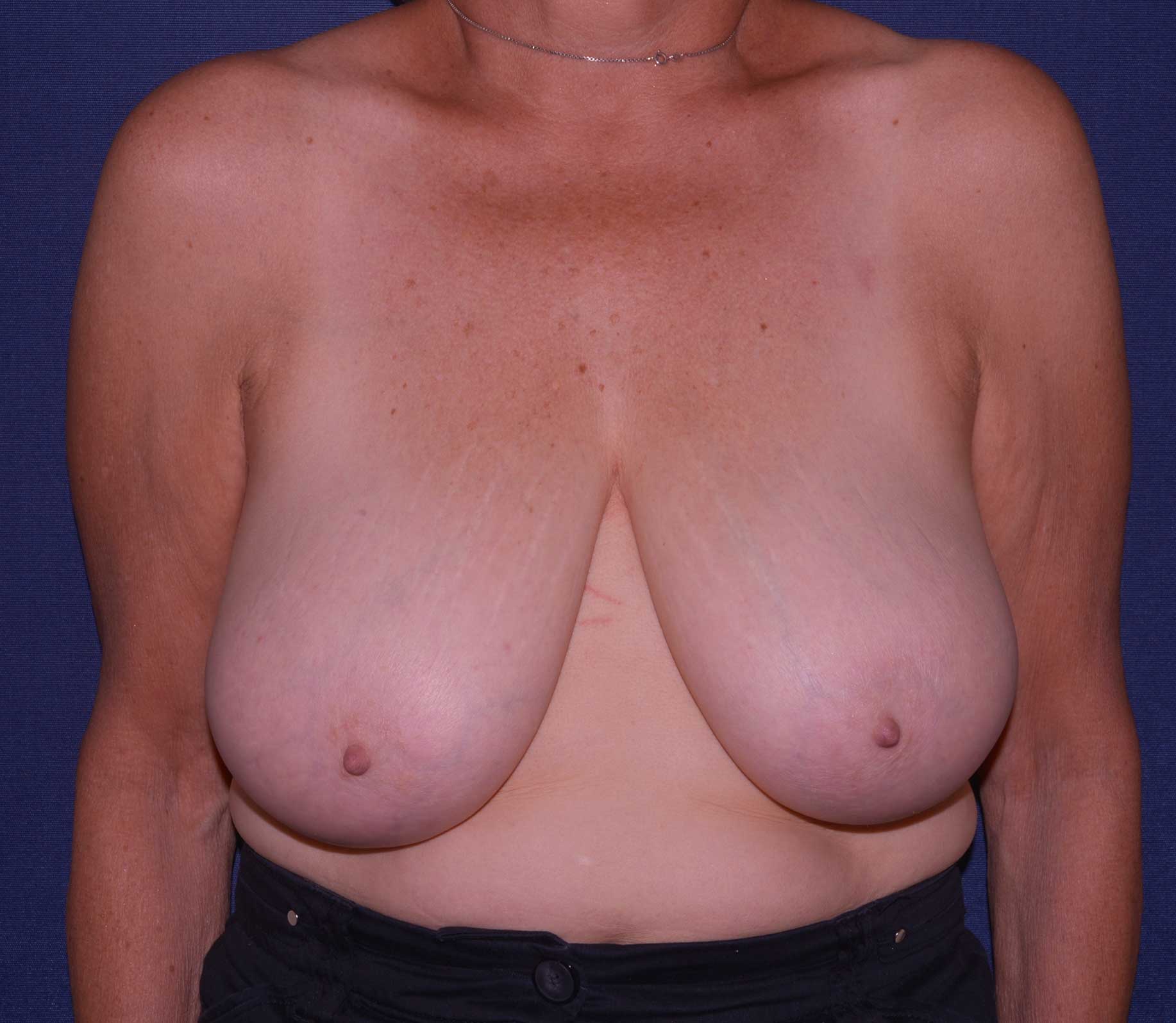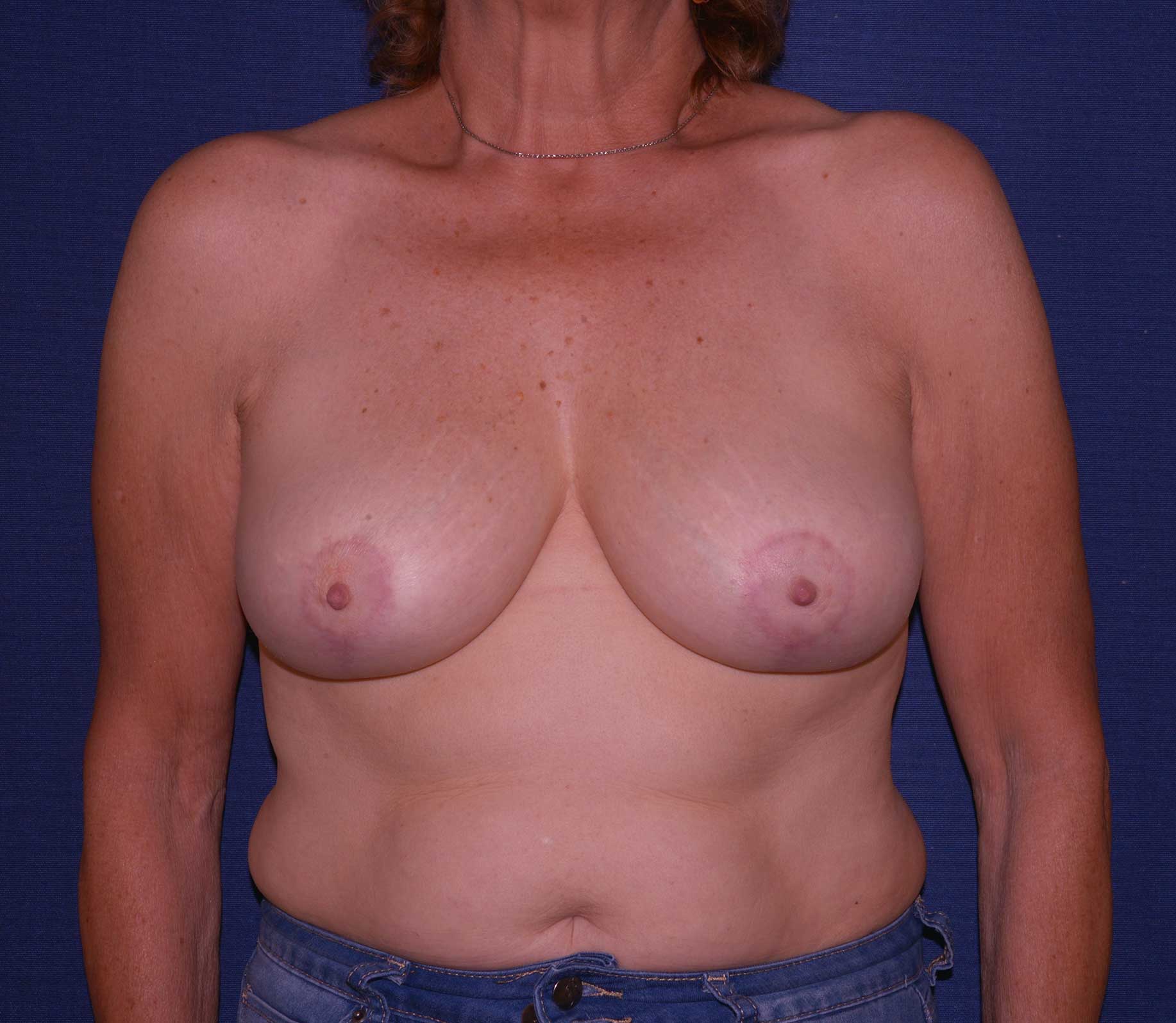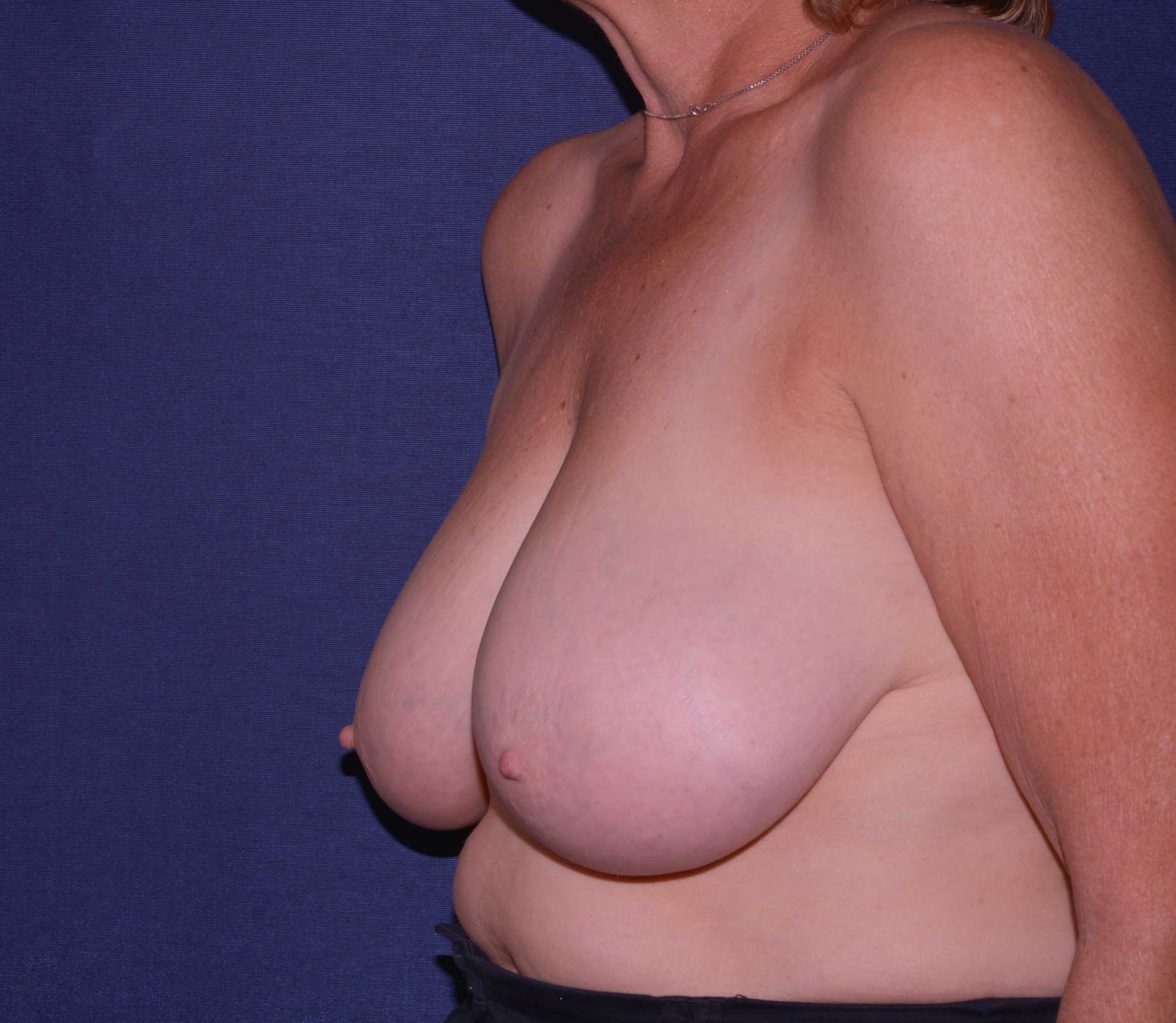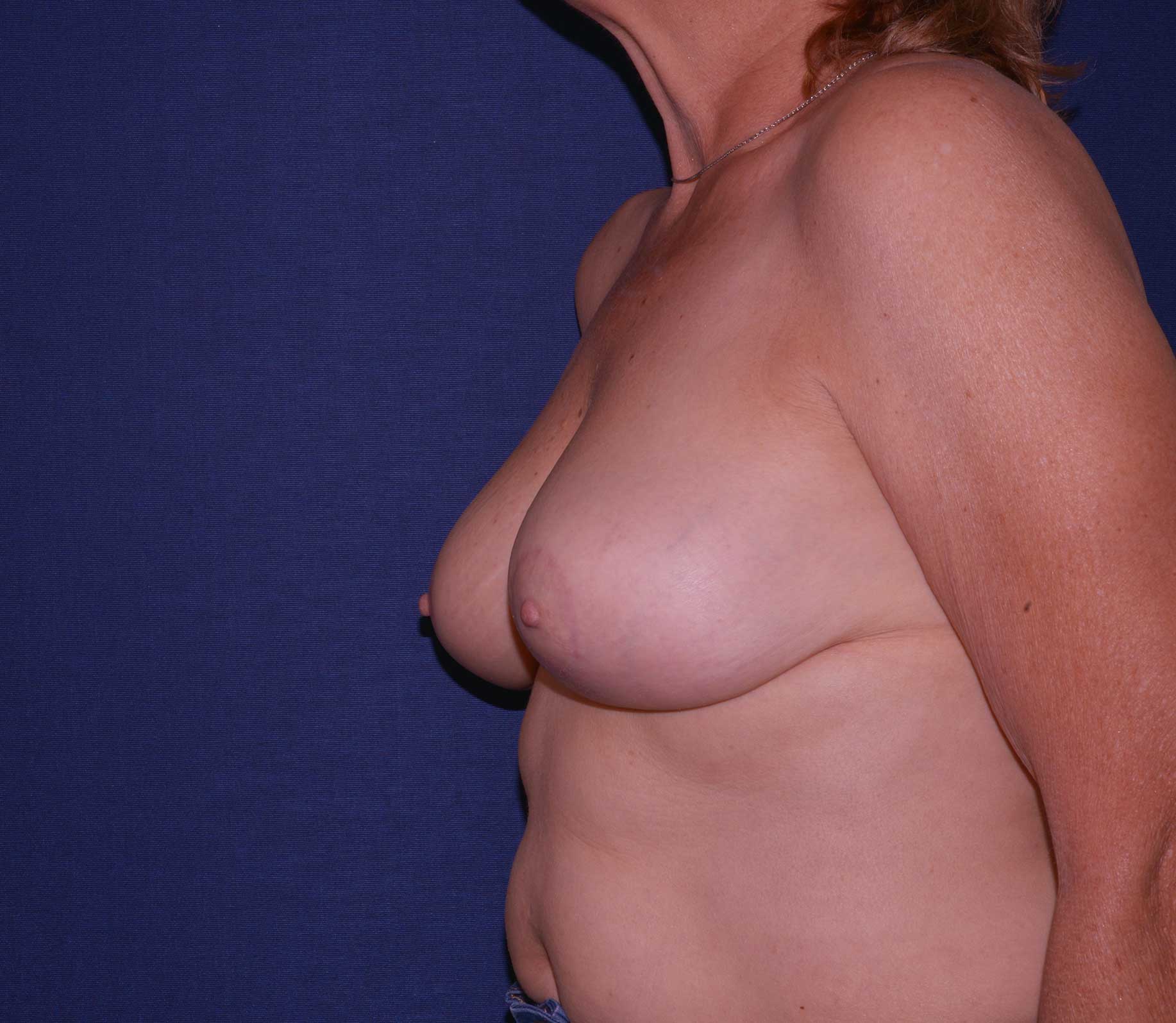What is Breast Reduction?
Our Boca Raton breast reduction surgery is most often performed to alleviate the physical symptoms associated with large breasts. Most women with large, sagging breasts experience a restriction in their physical activities, as well as physical discomfort such as neck and back pain. Bra straps may leave indentations in the shoulders. Very large breasts can also make a woman feel very self-conscious.
Breast reduction is a surgical procedure intended to reduce the size of breasts and reshape them by excising fat, skin and glandular tissue. It may also involve a procedure to counteract drooping (ptosis) of the breasts. It is most often performed on women – but may also be performed on men who are afflicted with gynecomastia.
Breast reduction is usually performed after a woman’s breasts have fully developed; however, it is sometimes performed earlier under extenuating circumstances. Breast reduction results in a smaller, uplifted breast by removing excess tissue and skin. The incisions vary, depending on the degree of ‘sag’ that needs correction. Most often, a breast reduction in Boca Raton can be performed using an incision that circles the areola and extends downward to the breast crease. In some cases a circular scar (circum-areolar) may be used. Occasionally, breast reduction can be performed using liposuction only. In patients with extremely large breasts, the nipple areola complex is removed and sutured back in position as a skin graft. In this procedure, a single incision is made in the breast crease.
Following vertical scar breast reduction.
Breast Reduction Surgeon in Boca Raton, FL
Breast reduction in Boca Raton is a surgical procedure intended to reduce the size of breasts and reshape them by removing excess fat, skin and glandular tissue. It may also involve a procedure to counteract drooping (ptosis) of the breasts. It is most often performed on women – but may also be performed on men who are afflicted with gynecomastia.
How is Breast Reduction Performed?
Breast reduction is usually performed after a woman’s breasts have fully developed; however, it is sometimes performed earlier under extenuating circumstances. Breast reduction results in a smaller, uplifted breast by removing excess tissue and skin. The placement and size of the incisions will vary, depending on the degree of ‘sag’ that needs correction. Most often, the reduction can be performed using an incision that circles the areola and extends downward to the breast crease. In some cases, a circular scar (circum-areolar) may be used. Occasionally, breast reduction can be performed using liposuction only. In patients with extremely large breasts, the nipple areola complex is removed and placed in a more youthful, higher position as a skin graft. In this procedure, a single incision is made in the breast crease.
Techniques Used for Breast Reduction
Anchor Incision (Keyhole or Weiss Pattern Reduction)
(Keyhole or Weiss pattern reduction): This involves an anchor-shaped incision that circles the areola and then extends downward following the natural curve of the breast and extending both left and right in the crease under the breast. The surgeon works through this incision to remove excess glandular tissue, fat and skin.
Vertical scar technique
Also known as the SPAIR or short scar breast reduction. This is a popular procedure due to its minimal scarring and round shaped breast result after surgery. The incision circles the areola and runs down vertically to the breast fold – like a “lollipop.” This technique produces good long-term results. The breast is reduced through these incisions – removing the lateral and inferior tissues – leaving the fullness of the upper pole intact. In theses cases, the nipple and areola remain attached to the breast – which means they are not cut off from their blood supply. This increases the ability for breast-feeding and retention of sensations in this area.
Free nipple graft technique
The nippled areolar skin is removed and placed in a more attractive, youthful position on the repaired breast tissue. After resecting the excessive breast tissue, an incision is made in the breast fold through which the tissue is removed. The incision is closed in a line along the breast fold. The nipple areolar skin is then sutured back into position. This technique is best suited to the patient with very large breasts and for patients who are considered to be at high risk for breast cancer.
Breast Reduction Using Liposuction
Dr. Becker was one of the first plastic surgeons to describe the technique of liposuction breast reduction with no visible scars. He has been performing this technique since 1990 and published his article in Annals of Plastic Surgery in May of 1992.
Many women who are concerned about the scarring and magnitude of traditional breast reduction surgery now have the liposuction option available to them. The procedure is performed in our certified surgical center with twilight sleep anesthesia and local anesthetic.
Several tiny incisions are made in the breast fold where the cannula for liposuction is introduced. There is minimal pain after surgery and no loss of sensation as there is no cutting of the breast tissue.
Thanks to new instrumentation and technique, it is possible to get the skin to shrink following the liposuction reduction. This allows the areola to be lifted several centimeters. The procedure also works extremely well in patients who have already had traditional breast reduction surgery and desire further reduction in size without having to undergo another large surgical procedure.
Another indication for liposuction breast reduction is the patient with asymmetric breasts (i.e., where the two breasts are of different sizes). This is often seen in the young patient where a scarless reduction is a gratifying option for both the patient and the surgeon.
A limiting factor of this operation is that we cannot obtain a high degree of breast lift using liposuction alone. However, a second procedure (if necessary) can be done at a later stage under local anesthesia to elevate the nipples. This involves excision of the skin around the edge of the areola leaving a circular scar, which is usually not very noticeable.
Dr. Becker lectured on his nipple elevation technique at the Annual Aesthetic Surgery Meeting in New York in May of 2001.
 (561) 347-7777
(561) 347-7777



